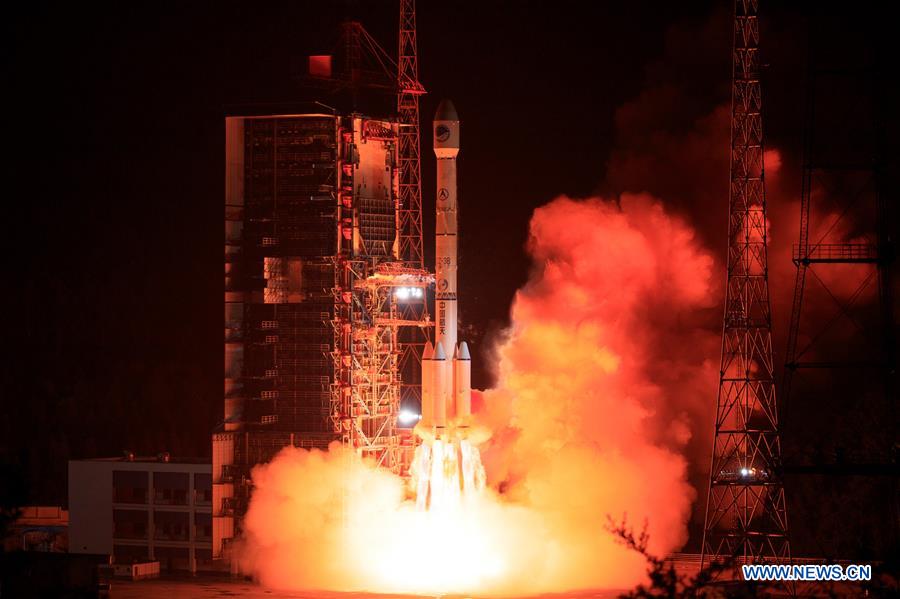China launches new BeiDou satellite
China sent a new satellite of the BeiDou Navigation Satellite System (BDS) into space from the Xichang Satellite Launch Center in Sichuan Province at 2:09 a.m. Tuesday.
China sent a new satellite of the BeiDou Navigation Satellite System (BDS) into space from the Xichang Satellite Launch Center in Sichuan Province at 2:09 a.m. Tuesday.
China sends a satellite of the BeiDou Navigation Satellite System (BDS) into space from the Xichang Satellite Launch Center in Xichang, southwest China's Sichuan province, on June 25, 2019. [Photo/Xinhua]
Launched on a Long March-3B carrier rocket, the satellite was sent to the inclined geosynchronous earth orbit. It is the 46th satellite of the BDS satellite family and the 21st satellite of the BDS-3 system.
The design of the BDS constellation is unique, including medium earth orbit (MEO), geostationary earth orbit (GEO) and inclined geosynchronous earth orbit (IGEO) satellites.
So far, there are already 18 MEO BDS-3 satellites, one GEO BDS-3 satellite, and two IGEO BDS-3 satellites sent into space.
After in-orbit tests, the new satellite will work with those BDS satellites already in orbit to improve the coverage and positioning accuracy of the system.
The new satellite and the carrier rocket were developed by the China Academy of Space Technology and the China Academy of Launch Vehicle Technology under the China Aerospace Science and Technology Corporation.
The launch was the 307th mission for the Long March series of carrier rockets.
China began to construct its navigation system, named after the Chinese term for the Big Dipper constellation, in the 1990s and started serving the Asia-Pacific Region in 2012.
The positioning accuracy of the system reached 10 meters globally and five meters in the Asia-Pacific Region as the system started to provide global service at the end of last year, according to Yang Changfeng, chief designer of BDS.
China planned to send 10 BDS satellites into space this year. The launches will help complete the BDS global network by 2020.
The system has been applied in many industries including transport, maritime affairs, electricity, civil affairs, meteorology, fishery, surveying and mapping, mining and public security.
The BDS has also been widely used around the world, like building construction in Kuwait, precision agriculture in Myanmar, land survey and mapping in Uganda and warehousing and logistics in Thailand.
To enable BDS to better serve the economic and social development in Belt and Road countries and regions, China has established BDS cooperation mechanisms with countries and organizations in South Asia, Central Asia, ASEAN, the Arab League and Africa, strengthening technical exchanges and personnel training, and building BDS overseas centers.


